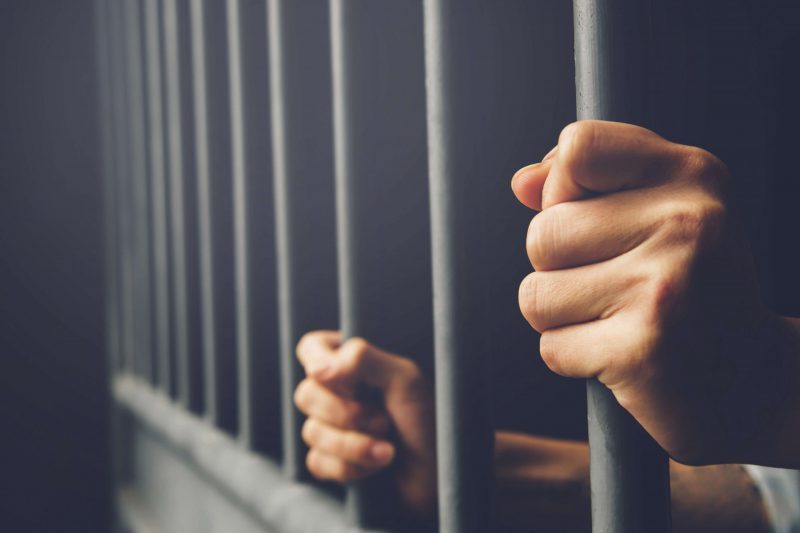While children may want to grow up and presume they know what it means to be an adult, society understands they need additional protection due to their immature stage of cognitive development. This includes the recognition that children may not understand the consequences of their actions, and thus should not be held to the same level of responsibility or subject to the same punishments as adults.
Under Proposition 57, all child crimes which go to court will start in juvenile court. Only if the judge believes the crime is that of a higher threshold will it be transferred to the adult criminal system. However, State Bill 1391 says minors aged 14 and 15 cannot be tried as an adult. Due to this law, children aged 14 or 15 who were sent to the adult system have been consistently sent back to the juvenile court. The position of each of these laws puts minors that are 14 or 15 at odds and there are some questions about if they can be tried as adults when they have committed heinous crimes.
This confusion over how to try 14 and 15-year-olds has led the state to wait on the judgment of the California Supreme Court. There are five cases where juveniles were sent by judges to the adult system and the supreme court will examine them in 2020 to make a determination on how to proceed. Four of these cases had appellate courts rule that there is no violation between SB 1391 and Prop 57.
However, though stakes may seem smaller, an experienced criminal defense attorney should still be contacted if potential legal issues arise, especially if criminal charges are pending. The vast majority of criminal offenses committed by juveniles are handled in the juvenile justice system, which seeks to rehabilitate young offenders instead of the retribution extracted in the adult criminal justice system. However, for serious offenses, a minor can be and sometimes is required to be, tried in the adult system.
A teenager recently arrested in Riverside claims to have molested up to 50 children over the past eight years, starting at age 10. Certainly, this case represents an extreme example of a young offender potentially facing serious consequences, but still raises the question of when a court would consider transferring a minor to the adult system. A discussion of the analysis used to make this decision follows below.

What is the Juvenile Justice System in California?
The main difference between the juvenile and adult legal systems lies in the outcomes each aims to achieve. The juvenile system is focused on education and rehabilitation, whereas the adult system is focused on punishing offenders for crimes. Because the outcomes are so different, the processes are not the same.
First, minors in the juvenile system are not entitled to a jury trial, unlike in adult court. The juvenile court judge or commission decides guilt or innocence, but, just as in the adult system, the prosecutor is required to prove guilt beyond a reasonable doubt.
Further, there is no bail in juvenile court, so retaining an experienced criminal defense attorney is crucial to obtaining the minor’s release. When it comes to sentencing, the most crucial aspect of any criminal case, the potential options are different for minors.
In cases with less serious crimes, probation may be imposed, and the typical conditions include:
- regular school attendance;
- following a curfew;
- working with a counselor;
- performing community service; or
- paying restitution to a victim.
More serious offenses could result in a sentence of time in a probation camp, foster or group homes, the California Division of Juvenile Justice (prison for minors), or juvenile hall. Importantly, once a minor turns 18, and assuming the juvenile case is closed, it is possible to petition for the records to be sealed or destroyed, which is crucial to moving into adulthood with a clean slate.
When Minors Can Be Tried as an Adult?
The law does not want to hold minors to the same standard as adults, and specifically prohibits prosecuting any minor under the age of 14 as an adult.
However, for those that fall within the window of 14 to 17, it is possible to be prosecuted as an adult in the following circumstances:
- the prosecutor exercises his/her discretion to directly file criminal charges in the adult court;
- the prosecutor petitions the juvenile court for a fitness hearing, and if found unfit for juvenile rehabilitation, the minor may be transferred to the adult system; or
- the minor is alleged to have committed an offense that automatically requires adult prosecution.
Fitness Hearing to Transfer Juvenile Cases to Adult Court
Once a minor reaches the age of 14, a prosecutor has the option, in certain circumstances, of petitioning the juvenile court for a fitness hearing to determine if the minor would benefit from the rehabilitation offered by the juvenile justice system.
Specifically, this legal option is available to a prosecutor if:
- the minor is 16 or older and accused of any crime;
- the minor is 16 or older and is alleged to have committed a felony previously used to make him/her a ward of the court, and was found to have committed two or more felonies since the age of 14. A presumption of unfitness arises in these cases that must be rebutted to avoid transfer to the adult system; or
- the minor is 14 or older and accused of certain violent offenses, such as murder, rape, kidnapping, or robbery, that specifically applies a presumption of unfitness for the juvenile process.
When courts assess whether to find a minor fit or unfit, the judge examines five criteria:
- the degree of criminal sophistication exhibited by the minor;
- whether the minor can be rehabilitated in the juvenile system before the juvenile court’s jurisdiction expires (age 25);
- the minor’s previous history in the juvenile system;
- the success of any earlier attempts to rehabilitate the minor; and
- the circumstances and seriousness of the alleged crime against the minor.
The court is also permitted to consider mitigating or extenuating factors, like the minor’s mental state at the time of the alleged offense, when evaluating fitness. Basically, the minor needs to show that he/she and society would be better served by rehabilitation in the juvenile system versus punishment in the adult system.
What Crimes Can Qualify for Prosecution as an Adult in California?
Any of the following crimes could lead to a minor being charged as an adult if it has been determined that the minor is ineligible for juvenile court and rehabilitation programs:
- Murder and attempted murder.
- Arson is occupied by people or where a person sustains great harm.
- Robbery
- Aggressive and forceful rape.
- Aggressive and forceful sodomy.
- Aggressive and forceful lewd act on a young child under the age of 14.
- Aggressive and forceful oral copulation.
- Forcing sexual penetration on another person.
- Kidnapping for ransom, to commit a sexual assault, a robbery, or in association with hurting another person.
- Assault with a weapon or firearm.
- Forceful and aggressive assault that could substantially harm another party.
- Shooting a gun into a building that has people inside.
- Assaulting a person that is over 60 years of age or disabled.
- Using a gun while committing a violent crime.
- Bribing a witness or intimating a witness.
- Making, manufacturing, or selling specific controlled substances
- Violent gang activity.
- Escaping a juvenile facility with force and violence.
- Torture
- Carjacking
- Aggravated mayhem
- Drive-by shooting
- Willful manslaughter
- Making an exploding device to kill others.
The following crimes will automatically result in a child that is at least 14 years of age to be tried as an adult:
- If a prosecutor claims the minor was the person who murdered a victim.
- When the prosecutor says that various types of violent sex offenses were committed by the minor personally.
Being tried in the adult criminal justice system means a minor is vulnerable to increased penalties and much harsher punishments. In the adult system, a minor is going to be tried the same way that other adults are and be handed the same types of sentences, including life in prison.
The only fate that a minor will not be subject to is death.
What Are The Difference Between Being Tried In The Juvenile System Versus The Adult System?
The major difference is the severity of punitive actions. In the adult system, juveniles will have much tougher punishments and outcomes versus those in the juvenile system. When children are tried in the adult system and sentenced to jail, they are transferred into the adult prison system. Studies and statistics show that when a young person is sent to serve their time in the adult system they are more vulnerable to becoming career criminals. This is in large part because they are not being exposed to reform programs offered in the juvenile system.
California’s history of dealing with criminal children was to not allow any youngster under the age of 16 to be tried as an adult. That changed in 1994. Young people aged 14 are now subject to be charged with major felonies including murder or rape. But when SB 1391 was passed, the goal was to increase the minimum age for juveniles back to 16 in order to be tried as adults.
Opposition to SB 1391 says that particularly outrageous crimes committed by youngsters will not be treated with the severity that they require. This means that victims of crimes committed by young people won’t see their full legal justice for the damages and suffering they had to endure.
Speak with a Los Angeles Criminal Defense Attorney Today
Criminal proceedings as a minor may seem relatively benign compared with the adult system, but they can have long-term consequences that should not be taken lightly. An experienced criminal defense attorney can provide the counsel and representation needed to protect your child’s rights and fight for disposition in the juvenile justice system, where children belong.
Manshoory Law Group, APC represents clients in juvenile cases and will work to get the best possible outcome. Attorneys are available 24/7 to take your call. Contact the Los Angeles law firm for a free consultation.



